Today, Allegheny County Controller Chelsa Wagner released the first audit report in over a decade regarding the Community College of Allegheny County (CCAC). The Controller initiated this analysis to assess whether CCAC has conducted its operations with demonstrated fiscal prudence, and in a manner which justifies the continued significant financial support of the taxpayers of Allegheny County. On average, County taxpayers have contributed just over million annually in recent years.
While the Controller uncovered certain practices that needed to be strengthened, she has confidently concluded that CCAC stands worthy of continued, if not greater, investment now and into the future. Since assuming office just over a year ago, Wagner has focused audit efforts on large cost drivers and important assets of County government. Other auditing engagements have included the property reassessment, public works, County building management, and tax exemptions and abatements, among others.
“Community Colleges are one of Pennsylvania’s most important assets – providing opportunity for many who otherwise would never have a chance to gain a college degree,” Wagner said, “Even with continual concerns over funding cuts, CCAC’s leadership has run a tight ship and conducted its affairs with the interests of both students and taxpayers in mind.”
In assessing CCAC’s 0 million annual operation, the Controller focused her review on CCAC’s fiscal policies and procedures in a number of areas. She additionally looked for opportunities for the College to become more efficient and better serve students and faculty. This multi-faceted analysis examined areas such as tuition and student aid policies, fundraising efforts, collection procedures, expenditures, operating reserves, and bookstore operations.
“Overall, the Community College of Allegheny County is a responsible steward of the tuition dollars and public funding it receives. CCAC provides great value to its students, businesses and communities in search of skilled labor, and our region.” Controller Wagner said, “This report indentifies opportunities for CCAC to reinforce their value to our community and region and makes recommendations on how the college can be more innovative and transparent.”
Many of the recommendations in the report contain steps CCAC can take to improve their internal controls, be more innovative to control costs and improve services, and be more responsive to the needs of the region’s changing economy. One recommendation calls for CCAC to do what is necessary to expand access to their popular health care programs, especially in the nursing school where classes often fill up quickly due to the growing demand of the region’s health industry. Additionally, Wagner recommends that CCAC better target its advertising at populations most in need of affordable education options, as to best fulfill their mission of providing opportunity for those who may not be able to access another higher education institution due to financial standing.
“We rely on CCAC to train our workforce, ensure all our high school graduates are able to pursue higher education, provide a second chance for the unemployed and laid-off to learn new skills for 21st century jobs, and assist veterans who return home to Allegheny County after their service.” Wagner said, “It is important for County residents to know CCAC is a wise investment of their tax dollars, especially in these difficult times. I commend President Johnson, college leadership, and CCAC’s Board of Directors for their steadfast work to protect and grow this valuable County asset.”
Additional recommendations from the report included the need for CCAC to: more aggressively pursue some ‘cash match’ grant funding; try to avoid sporadic, large increases in tuition; improve the performance evaluation process for employees; evaluate the utilization of their bookstore and improve its operations; revise policies regarding uncollectable amounts, contributions, and reimbursements; and improve its budget process to better control operating costs.


